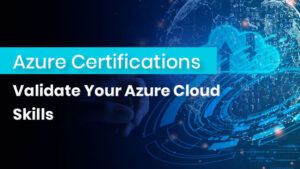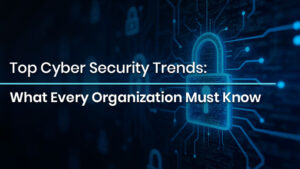
Azure Certifications – Validate Your Azure Cloud Skills
Azure Certifications – Validate Your Azure Cloud Skills Introduction Cloud computing has transformed the business landscape, providing scalability, flexibility, and affordability in a way
Limited-Time Offer! Get an exclusive 40% OFF on IPSpecialist Premium Monthly & Annual Plans. Use Promo Code: UPSKILLNOW at checkout.

Azure Certifications – Validate Your Azure Cloud Skills Introduction Cloud computing has transformed the business landscape, providing scalability, flexibility, and affordability in a way

Top Cyber Security Trends: What Every Organization Must Know Introduction In an era marked by digital transformation, remote workforces, and rapidly evolving threat landscapes,

Zero Trust vs. SASE: Everything You Need to Know Introduction As the cyber world continues to change, companies need to look beyond conventional security
Table of Contents
A Database Management System (DBMS) is software that allows users to easily manage databases. It enables users to interact with the database’s underlying data. These actions can range from requesting data to creating database schemas that significantly impact the database structure.
Furthermore, DBMS enables users to communicate with a database safely and concurrently without interfering with other users and while ensuring data integrity.
DBMS is a software application that stores, retrieves, queries, and manages data. Authorized entities can use user interfaces (UIs) to create, read, edit, and delete data.
Database management systems are significant because they provide a centralized view of data to programmers, database administrators, and end users, freeing applications and end users from needing to comprehend where data is physically located. This article covers detailed knowledge of Database Management Systems (DBMS).
Check out our Cloud Computing Courses now if you want to start your career in Cloud Computing.
Typical database administrative duties that a DBMS can accomplish include:
Conveniently configure user accounts, access controls, limits, and access scopes. Administrators can utilize these activities to restrict access to underlying data, regulate user behaviors, and manage database users.
DBMS can ease database backups by offering a simple and intuitive interface for managing backups and snapshots. They can even store these backups in third-party sites such as cloud storage.
DBMS can monitor database performance using integrated tools and allow users to customize databases by designing efficient indexes.
DBMS provides a recovery platform with the capabilities needed to fully or partially restore databases to their prior condition during a recovery operation.
A single management interface facilitates all of these administrative responsibilities. Even in a distributed database context, most modern DBMS support handling numerous database workloads from a centralized DBMS software. Furthermore, they enable companies to maintain an ordered top-down view of all data, users, groups, and locations.
Although there are many distinct types of DBMS, the most generally used DBMS can be divided into three categories:
This is the most frequent type of database management system. They communicate with databases containing structured data in tables with established relationships. Furthermore, they interface with databases using a Structured Query Language (SQL).
These DoDBMS manage databases that store data in JSON-like forms with little relationship structure. For database operations, they are powered by query languages such as MongoDB Query Language (MQL).
As the name implies, this type of DBMS is intended to manage columnar databases, which store data in columns rather than rows, with a focus on high performance.
A Database Management System has the following features and properties:
A database management system will be used in a variety of fields. Let’s look at some of the applications that use database management systems.
The railway reservation system database is particularly significant since it keeps track of ticket bookings, train departure and arrival times and informs people about train delays.
Due to the database, it is now simple to track and manage each book in the Library. This occurs because the Library contains thousands of books. Keeping a record of all books in a copy or register is quite challenging. Now, DBMS stores all book release dates, titles, authors, and availability information.
Banking is one of the most common uses for databases. We are all aware that there will be thousands of transactions through banks daily, and we are doing this without going to the bank. This is all made possible by the DBMS, which manages all bank transactions.
Only DBMS allows for the purchasing of things and credit card transactions. Credit card holders must understand the significance of their information, which is protected by DBMS.
We can access social media platforms by providing the necessary information. Many people daily join social media sites like Facebook, Pinterest, and Instagram. The Database Management System (DBMS) stores and maintains all user information.
There are many things to do with finance nowadays, such as storing sales, holding information, and managing financial statements, among other things. All of this is possible with database systems.
Manufacturing firms create and sell products daily. DBMS is used to keep track of all those details.
A large selection of database software options is available for database management, including both business and open-source solutions.
Some of the popular database management systems are as follows:
Oracle Database is a business-to-business relational database management system. It employs enterprise-scale database technology and ships with a rich range of capabilities. It can be saved locally or in the cloud.
MySQL is a relational database management system widely used with open-source content management systems and big platforms such as Facebook, Twitter, and YouTube.
SQL Server is a relational database management system built on Structured Query Language (SQL), a standardized programming language that administrators use to administer databases and query data.
A Database Management System (DBMS) is a systematic operational system that consists of tools that make data collection, storage, and manipulation easier. For data handling, DBMS is widely used throughout the world. As a result, it is still a good data manager today.
© 2025 All rights reserved | Privacy Policy | Terms and Conditions | Sitemap | Cookie Policy




